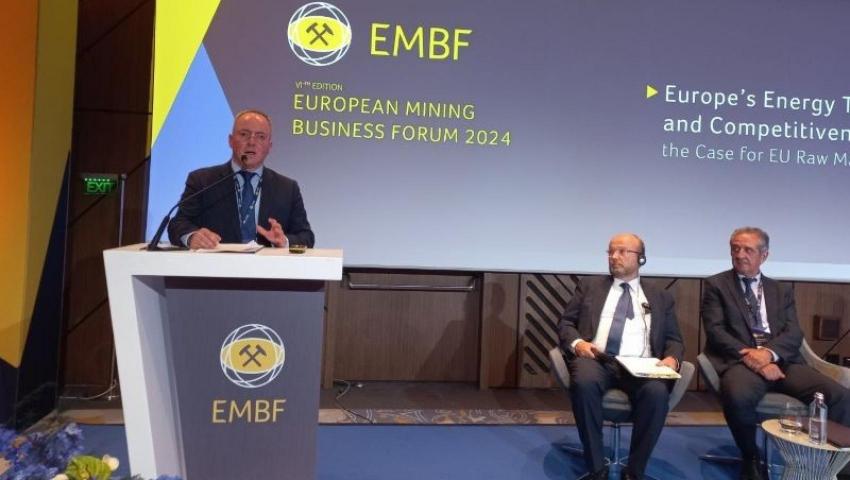Deputy Minister Nenov: The mineral industry has new responsibilities for achieving green goals

The Ministry of Energy closely monitors the development of the mineral and raw materials sector. It has always supported it with legislative initiatives, expertise and practical guidelines for the optimal use of natural resources, so as to find a balance between energy and environmental protection. This was stated by the Deputy Minister of Energy Krasimir Nenov at the opening of the sixth European Mining Business Forum in Sofia. He outlined the changed role of the sector in the current geopolitical situation, as well as its new responsibilities in the context of the European green goals and the achievement of high competitiveness.
The Deputy Minister of Energy cited data for 2023, which testify to the importance of this strategic industry for our country. The extraction of oil and natural gas is carried out from deposits with an area of over 153 thousand decares, of solid fuels - from over 728 thousand decares, of construction materials - from 102 thousand decares, of metal minerals - from 85 thousand decares, etc. The extraction of minerals, calculated per capita in our country, has been growing over the last ten years, and labor productivity is nearly 2.5 times higher than the average for the industrial sector.
In order to have clean and affordable energy for all consumers, we must make joint efforts to develop the mining and processing industries. In a dialogue with everyone, together we will overcome the obstacles to its growth, especially in the provision of critical raw materials, emphasized Krasimir Nenov. According to him, the huge investments planned to achieve the goals of climate neutrality presuppose the presence of sustainable value chains, including for the raw materials of critical importance. Shorter and sustainable supply chains are important both for energy and for the entire economy, he emphasized.
Deputy Minister Nenov pointed out the speed of transition and the need to meet the expectations of society as a major challenge for the Bulgarian energy industry. To have flexibility of the system so as to provide the needs of the users at any moment – both domestic and industrial. Europe's competitiveness is put at risk if the topics of reducing dependence on imported energy sources and critical raw materials are not addressed. For this purpose, it is necessary to continue the open dialogue and for the governments to interact with science and business in order to create an appropriate investment climate and this framework that will retain existing investors and attract new ones, Deputy Minister Nenov summarized to the forum participants.
